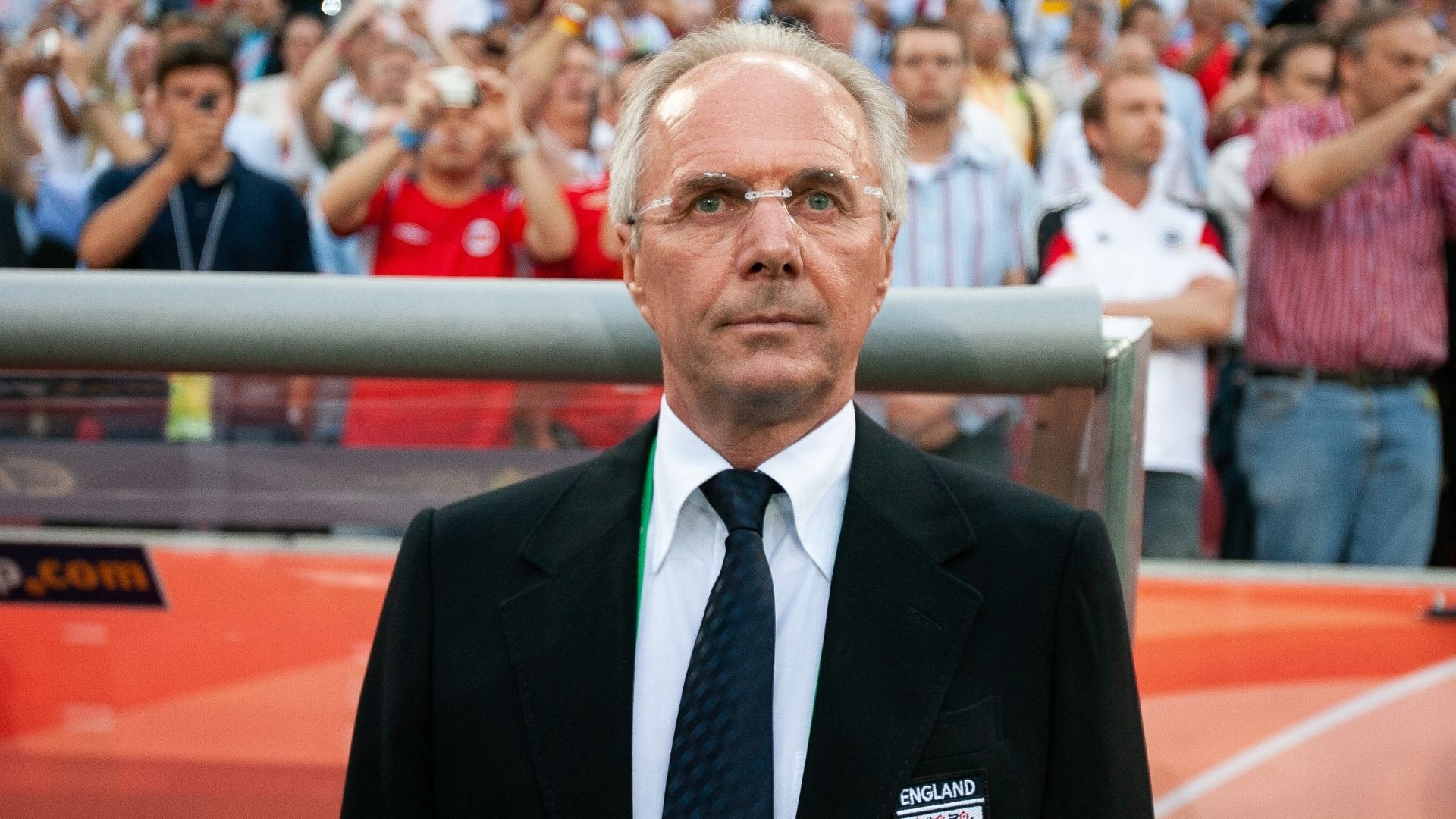
When Sven-Goran Eriksson took over Swedish third-tier side Degerfors in 1977, he could not possibly have known where his managerial career would eventually lead. His time as a player was restricted to the Swedish lower leagues, but things were different in the dugout.
After success with Degerfors, his career took him to Gothenburg, then to Portugal with Benfica, Italy with Roma and Fiorentina, back to Portugal with Benfica, then to Italy again with Sampdoria and Lazio. His highest profile job, leading England from 2001-06, preceded stints at Manchester City and Leicester, either side of spells with Mexico and the Ivory Coast.
He coached in China with Guangzhou R&F, Shanghai SIPG and Shenzhen, with his final job seeing him take charge of the Philippines, which he left in January 2019.
Having accepted 17 posts in eight countries, few men could match the wealth of experience that Eriksson amassed in management. For the November 2019 issue of FourFourTwo, we sat down to speak to the Swede about his vast expertise and what it took to reach the very top.
VIDEO: Why Joao Felix To Chelsea SHOULDN'T Work... But Does
Sven-Goran Eriksson's 10-step guide to management
1. Taking over a new team
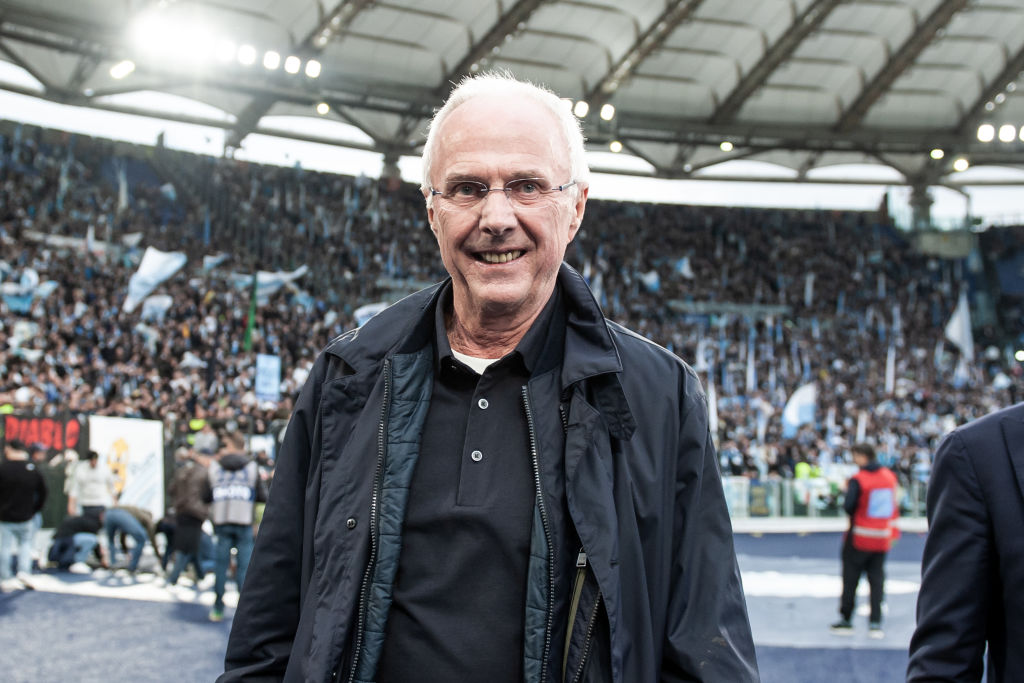
Whenever I take a new job, the first thing I do is a lot of research. I learn the names of the players before I meet them, and try to watch as many videos as I can. Usually you’re taking over straight away, so you can’t see any games live.
I try to find out as much as I can about every single player. When it’s a national team like England it’s much easier, because you know the players already. If you go to a new club, it can be more difficult. When I moved to China as manager of Guangzhou R&F in 2013, it was really hard. Learning everyone’s name beforehand was impossible.
When you arrive, you meet all the players and present yourself. You have to explain to them what you want to do, on and off the pitch. You tell them how you want to play and you must be very clear when you explain it, because everyone has to understand. Then it’s up to you as the manager to make them accept it. Understand it, accept it, then do it. But if you’re not clear about what you want to do, it’s very easy for it to become a mess.
When I met the England players for the first time, I spoke about the rules I had off the pitch and what I wanted to do on the pitch. That can be the formation you want to use – 4-4-2, 4-3-3, whatever it is – and then you need to give them some more details. For example, when we defend, when do we start to press? Shall we press high or shall we wait a little bit longer? All of these details – attacking, defending, set-pieces, and things like that.
Off the pitch, you talk to them about making sure they’re always on time, and you talk about helping each other to create a good group of people who are all together. I think the England squad were on board with that. I don’t make rules that are impossible to follow or impossible to control – it’s very much about common sense, but you still have to address it anyway, to explain what the rules are.
Then you give them a chance to ask you questions, in case they’re wondering whether it’s right or wrong to speak up. Sometimes a team is in a good situation when I arrive; sometimes it’s more difficult. It’s always a different situation with any job you go into, never the same.
But one thing I won’t do when I take a new job is talk about what’s happened in the past – what they’ve done before I arrived and what the previous manager said. We only look at today and tomorrow, not yesterday
2. Giving young players a chance
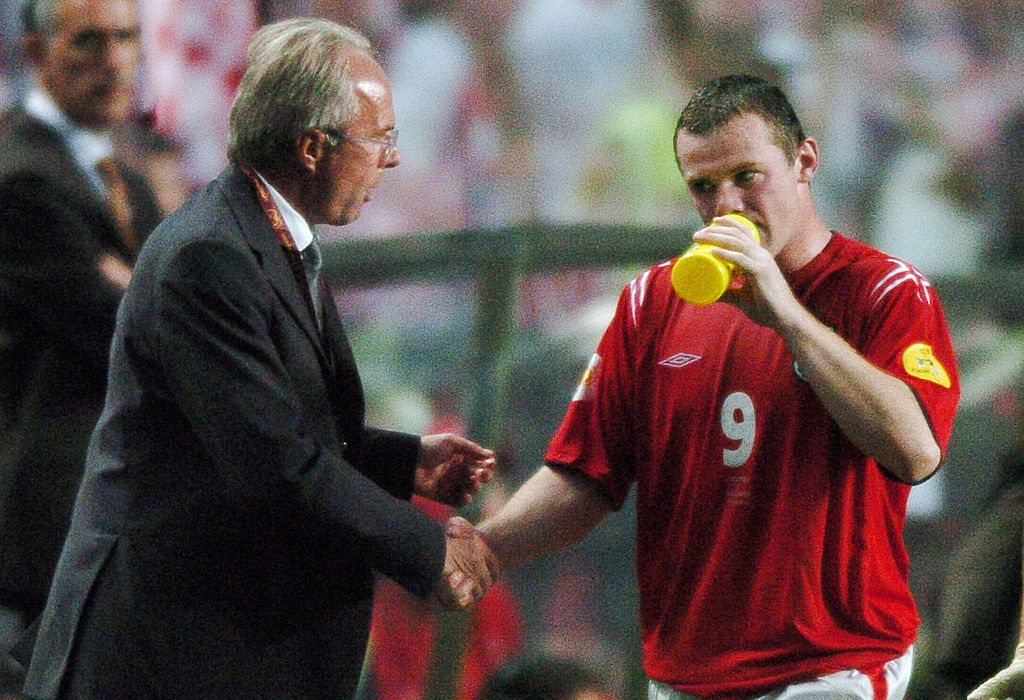
If I’m in charge of a national team, I’ll try to put young players in my squad as soon as I think, ‘This is something special’. If you think that player might become very important for the country today or tomorrow, pick them. When you think they’re ready – physically, tactically and mentally – put them in the team.
That’s what happened with Wayne Rooney. Even though he was only 17, he made his first start for England in a crucial Euro 2004 qualifier against Turkey, but he was ready. We thought he was ready, and he said he was ready!
Wayne was very mature, not only physically but mentally, too. Inside himself, he knew he was a great player, and he knew he could do it on that stage. When I told him he was playing, the day before the Turkey game, he just said, ‘OK’, like it was no problem, and like he expected it. Maybe he did – who knows! [Laughs]
It’s a big satisfaction when you pick a young player like that and he does well, both personally and for the whole team. I think everyone in the England squad, everyone at the FA and all the staff were so happy when Wayne came into the team and performed well. When a player like that arrives, everyone tries to help him.
I’d told the senior players that we were going to play Wayne from the start against Turkey, and they all said, ‘Yes, yes, good!’
You always want to give young players a chance when you’re a club manager, too. It’s good business for the club you work with. Normally at any club, you have good young players there. I had two or three at Benfica that I was able to give a chance to, including Paulo Sousa. At Lazio, I made Alessandro Nesta the captain when he was still only 21.
If you think players are ready, give them a chance.
3. Man management
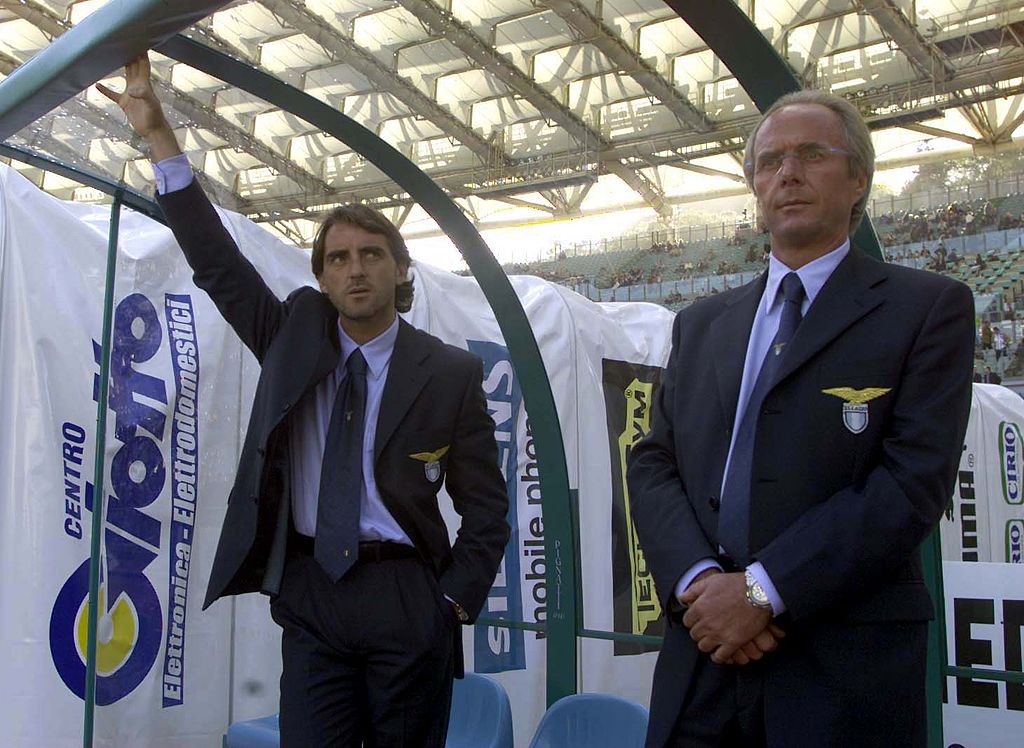
Being a manager today is so different to how it used to be. It’s not just a case of starting a training exercise, doing it for 20 minutes and giving out instructions. Man management is vital.
When you’re talking about players of a certain level – in the Premier League or on the international stage – the pressure from the media is much bigger now than it was 20 or 30 years ago. It’s totally different. You don’t just have the newspapers now – there’s television, radio and all the other media, too. If a player does badly, they’re criticised in the press, so man management becomes crucial.
I always think you have to show respect to every player – whether they’re famous or not famous, playing regularly or sitting on the bench. If you respect them, normally they will respect you. Respect is a key word when you’re talking about management – you have to take care of each other. That’s very important.
You may have star players, but I try not to give them more attention than the others. In fact, I don’t think I’ve ever done that. You talk to your captain more – they speak on behalf of the team – but I wouldn’t talk to someone more because they were a star player. If you’re a big star, you get enough attention already.
I’ve managed a lot of great players during my career. Most of them had one thing in common: they love football, like to train, like to work and like to perform. They’re very clever – they know they could try less in training and still have a good life because they’re big stars, but they also know that if they don’t work hard, their career will be shorter. So normally they work very hard – that’s why they become great players.
I treat star players the same way as everyone else – you don’t have special rules. That works for about 99 per cent of players, but I fought with a couple. It’s very seldom I fight, but if I see players trying to get things the others don’t have, just because they’re a star, then I’ll take that fight. It’s not fair and it’s not right.
4. Coming up with a game plan
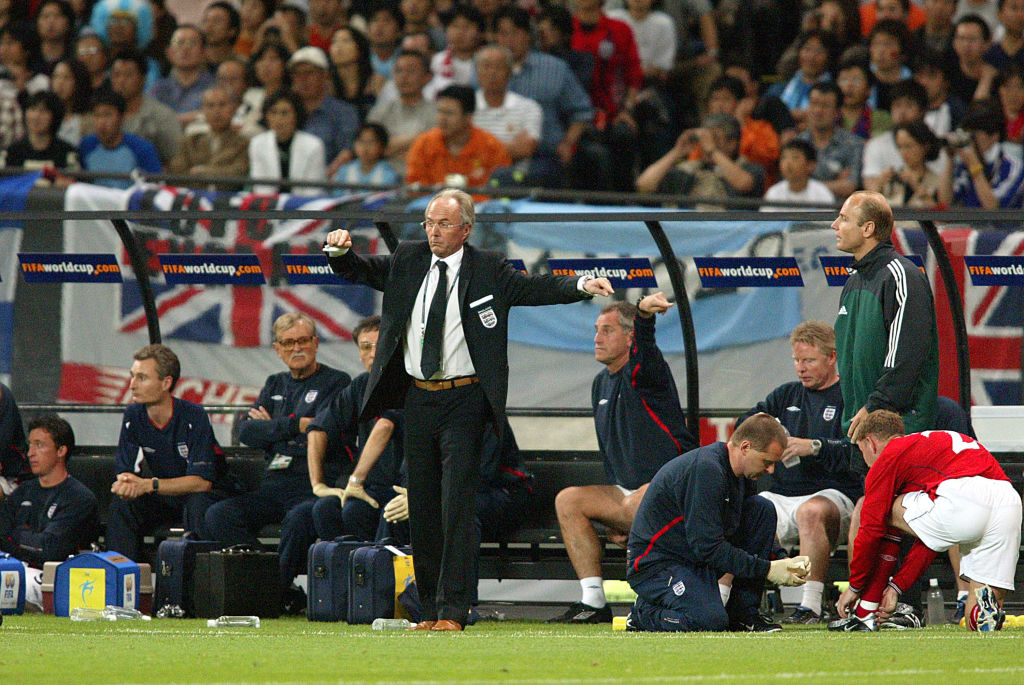
The morning after your previous match, you start thinking about your game plan for the next one. My team talk on a matchday is very short because, in my opinion, if you haven’t prepared properly in the week before the game, you can’t do everything on a matchday. It’s practically impossible.
You need to know what you want to do in a game, using videos and training sessions to show the players. It begins many days beforehand. The game plan for England’s 5-1 win in Germany was mainly about choosing the best team, because if you’re the manager of a national side, you don’t have the players for long. This was in 2001, almost 20 years ago, and if I’d said, ‘We’re going to play with three at the back’, that would have been difficult. Nobody played with three at the back in England at that time, and there wasn’t enough time to practise it.
So it was small things: when we lose the ball, do we press or go back? Thankfully, the game plan for that match went very well. Of course you wish every game would be like that, but it’s not! [Laughs] Normally that result would almost be impossible, but everything went our way.
When we beat Argentina at the 2002 World Cup, I think that game was tactically very well executed by the team. We prepared as normal, though. In football, sometimes you get it right and sometimes you get it wrong, like when we lost 1-0 to Northern Ireland in 2005. You need to remember those days, too, even if you want to forget them...
5. Recruiting players
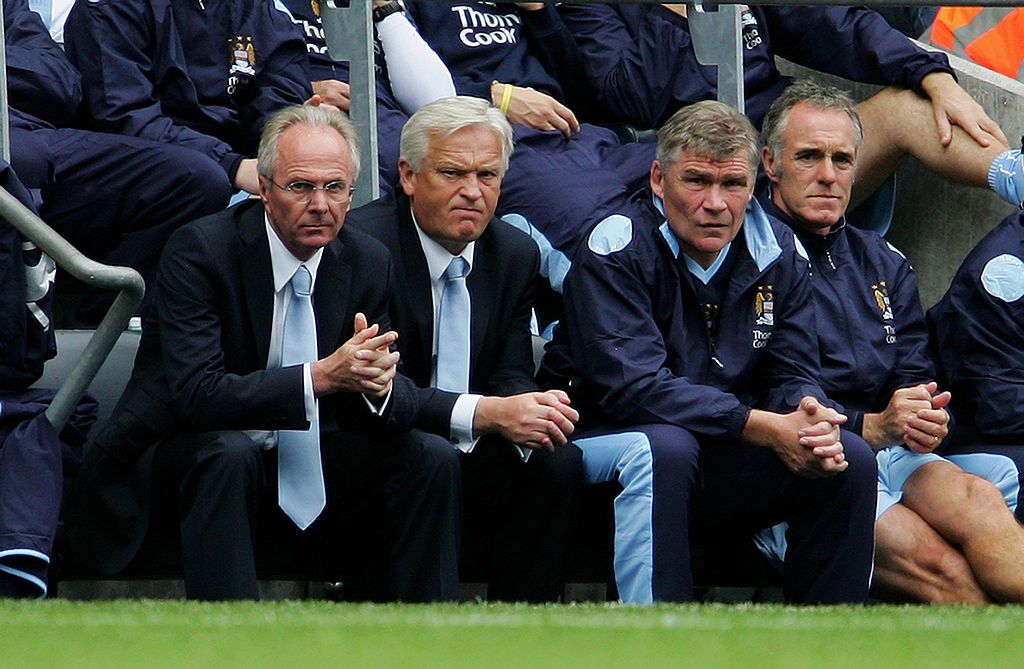
When you’re in charge of a national team, it’s very easy. If you see players who aren’t good enough or the right fit for the group, don’t pick them. When you’re in charge of a club, it’s more difficult if there are players you don’t like. You have to convince them that their way of playing or behaving has to be different. If that’s not possible, you try to sell them.
When you bring in new players, the homework you do before signing them is important. You’re often spending a huge amount of money – it was 20 years ago, and the fees are even bigger today – so you must be sure when you’re buying someone.
Normally you know how good they are on the pitch, but what they’re like off it is equally important. You can work hard and try to create a good ambience in the group, but it’s easy to destroy that if you buy a player who doesn’t fit in.
When I arrived at Manchester City in 2007, we signed seven or eight players and did well. It wasn’t just down to me, but my assistants and the scouts. We brought in some good players and played good football very quickly. There was Martin Petrov, Javier Garrido, Rolando Bianchi, Elano and others, too. Everybody fitted in and the results came on the pitch. That was good recruitment.
I had the opposite at Leicester in the Championship. The owner was very good to me. He gave me the budget but I spent it on the wrong players, the results didn’t come and I got sacked. That was the correct decision, as the players I brought in didn’t turn out to be the right ones.
6. Deal with the club hierarchy
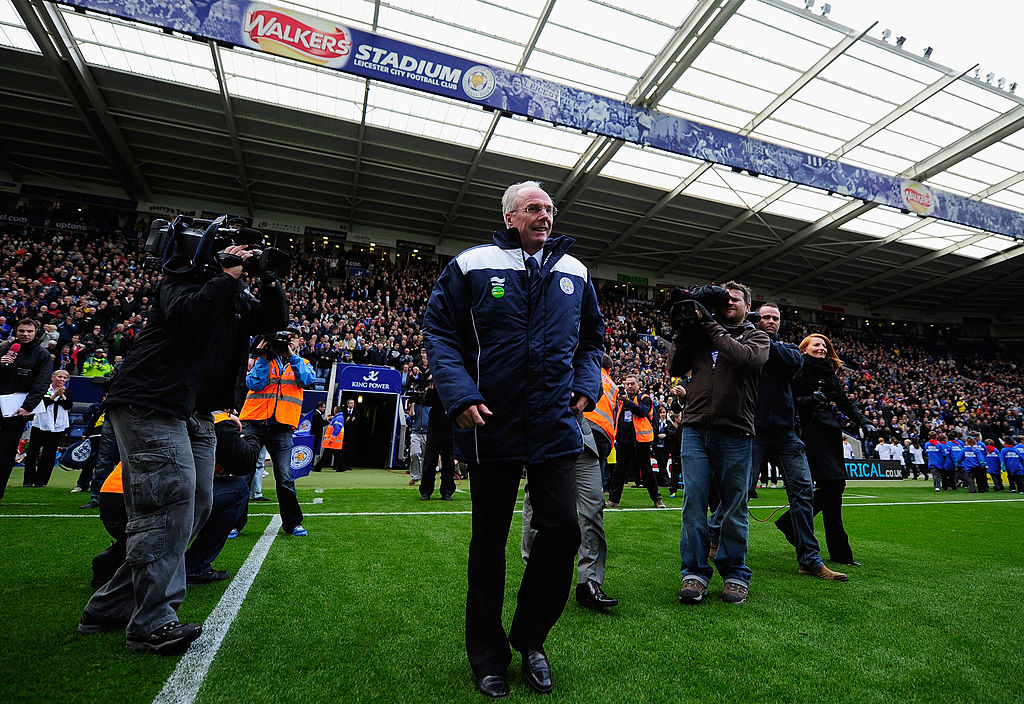
If you want to have success at a club, you have to treat everyone well. Don’t isolate yourself. Talk to people, and don’t be afraid to tell them what you’re doing. If you don’t have a good relationship with the owner of the club, it will be very difficult. It’s the same if you don’t have a good relationship with the players. Sooner or later it will become impossible, so it’s vital that you get along with people.
Normally when you get a new job, you meet up with the owner or president. You go for lunch or dinner and talk about football and life. That’s important for me, and it’s even more important for the owner, because he needs to know what he’s taking on for the next few years. There have been times when I’ve met an owner and decided against taking the job, because it didn’t feel right, but seldom does it happen.
When I was at Lazio, I worked for Sergio Cragnotti and it was love! [Laughs] We didn’t only have meetings about work, we’d have dinners with our families as well. He was fantastic because he trusted me. I’d tell him what I wanted to do and who I wanted to buy, and he’d say, ‘That’s expensive!’ I’d say, ‘Yeah I know, but this player will score a lot of goals’. He’d say, ‘OK then, let’s do it’.
It’s rare that you have an owner like that today. Maybe if you’re the manager of Manchester City or another of the big clubs – but in Italy at that time, only the really big clubs did things like that. Cragnotti did it and the results came. We won Serie A.
Thaksin Shinawatra was different when I was at Manchester City. To be fair to him, he put some money in and we bought those seven or eight players. But then, yeah... the rest was not so good, unfortunately.
I really liked Vichai Srivaddhanaprabha at Leicester. I was sacked by Vichai and his son after a year, but I would have done the same thing if I was them. He gave me the money to buy new players and some of those players weren’t as good as we had hoped, so things didn’t go so well for us. Vichai was a very nice man. Even though I was sacked, I had nothing against him.
7. Choosing your captain
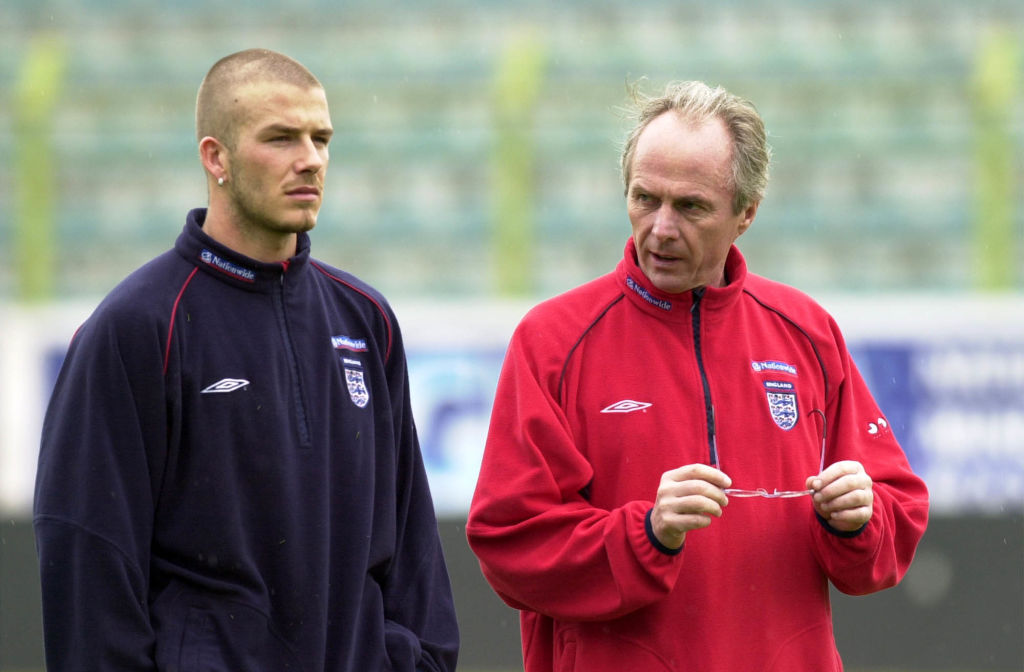
You need a captain who is respected by the whole team. He doesn’t need to shout or speak all day – but when he speaks, the others listen.
Normally you can feel who that is. You see the player who the others respect; the one who can stand up in the dressing room and say, ‘Hey, come on, we’re defending badly!’, or whatever the problem might be. If it’s someone who knows the team and has been there for a while even better, although that’s not necessarily the most important thing.
Picking David Beckham to be my England captain was a very easy choice, even if we later had many potential captains – Rio Ferdinand, John Terry, Frank Lampard, Steven Gerrard and others – that I could have chosen. But everyone respected Beckham – not just the players, but also the people around the team and the general public.
People sometimes criticised my decision to make him captain, but I never understood that and I never listened to it, either. The Greece game in 2001 was a great example of why he was captain. That was a good free-kick! [Laughs] He showed a lot of character in that game. David didn’t speak very much, but when he spoke, people listened.
He would speak to the group when it was necessary, and many times he spoke with players privately, too. When Wayne Rooney and other young players first came into the squad, David and the senior players always took care of them brilliantly. I think all the young players felt at home straight away.
I’d have conversations with David: sometimes about football, but often about organisation and preparing for the World Cup, for example. Where we stayed, how we travelled, how many days we spent there, and things like that. I’d check something with him and he’d say, ‘Yeah, I think that’s right, Sven’, or sometimes he’d say, ‘Give me a couple of days and I’ll speak to the senior players’. I think that’s the normal way to work with a captain. You choose him because he can speak for the
players, otherwise you have to speak with too many people yourself.
Roberto Mancini was my captain at Sampdoria and he wasn’t just the captain – he was the coach, he was the kitman, he was everything! [Laughs] A while after I started there, I said to him, ‘But Mancio, you’re a player, and when Sunday comes around I think you’re tired because you’re worried about everything in this club. You’re doing everything!’ That was the way he was, though. Once a week he would invite all the
players for dinner, and he paid for everything
8. Pre-match team talks
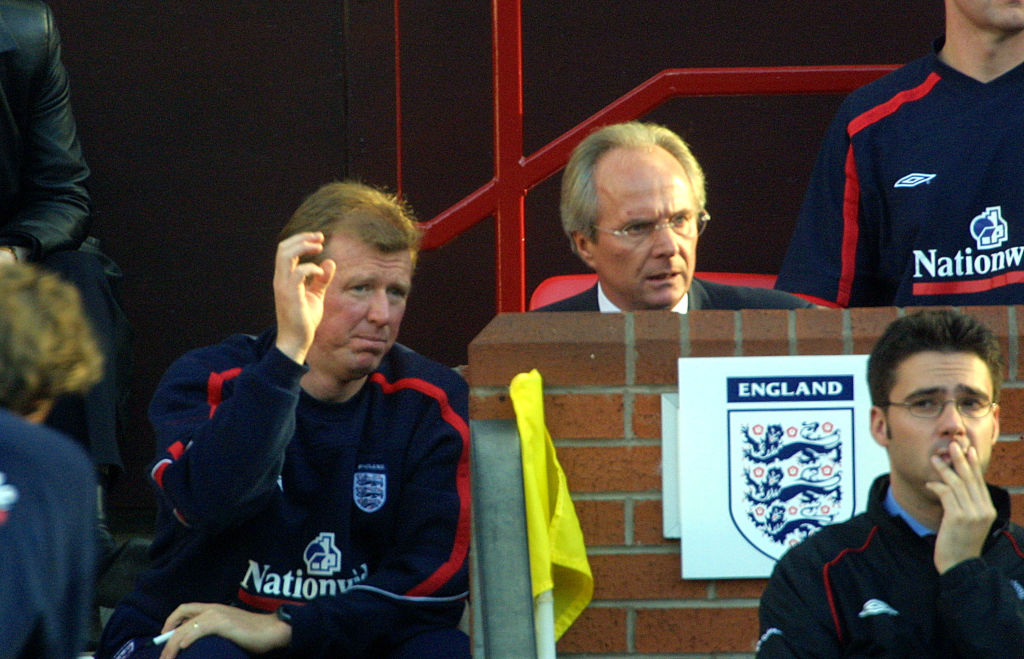
In my opinion, a team talk should be short and sharp, as they say in England. You shouldn’t stand there and talk about everything, talking nonsense. No. What’s really important? Defending, attacking, set-pieces and being mentally right. Are we playing Germany away? You don’t need to pep them up, because they know it’s difficult and everyone will fight. Are we playing a smaller team at home? You need to say, ‘Hey, come on!’
Before the Germany game, I think I said the same things as normal. When we lose the ball, what’s important? Every opponent has things they’re very good at, whether that’s counter-attacking, set-pieces or a certain player that you need to take extra care of. You might also say, ‘Remember when they get free-kicks in this position, they’re extremely dangerous, so make sure you pay attention’.
You’ve done all your preparation during the week, talking about the details on the training pitch and in a meeting room with videos. The team talk is just a reminder. Sometimes it works, sometimes it doesn’t. There’s another man doing the exact same thing with your opponents!
At half-time it’s the same. Your team talk has to be short – you can’t run through every single kick from the first 45 minutes. You have to stress what they’re doing well and tell them to continue doing it, as we’ll hurt the opponents if we keep doing it. If we’re doing bad things, change it and address it. ‘Hey, you must be better at winning second balls’, or whatever the issue is. But you can’t just stand and talk for 15 minutes about every detail, because players are tired and frustrated. It must be concrete and clear.
During a game, I try to stay as calm as possible. I’ve been criticised for that – every time my team plays poorly and loses, it’s normally one of the first things people say, that I’m too cold. But for me, it’s always been important that the manager has his head in the right place – you shouldn’t be losing your head by screaming and telling people to f**k off, because that’s not very constructive.
I’ve always tried to remain as calm as possible, even if I wasn’t feeling calm. I try to work out what’s more important and what’s less important – use the brain, not only the heart.
9. Adapting to a new country
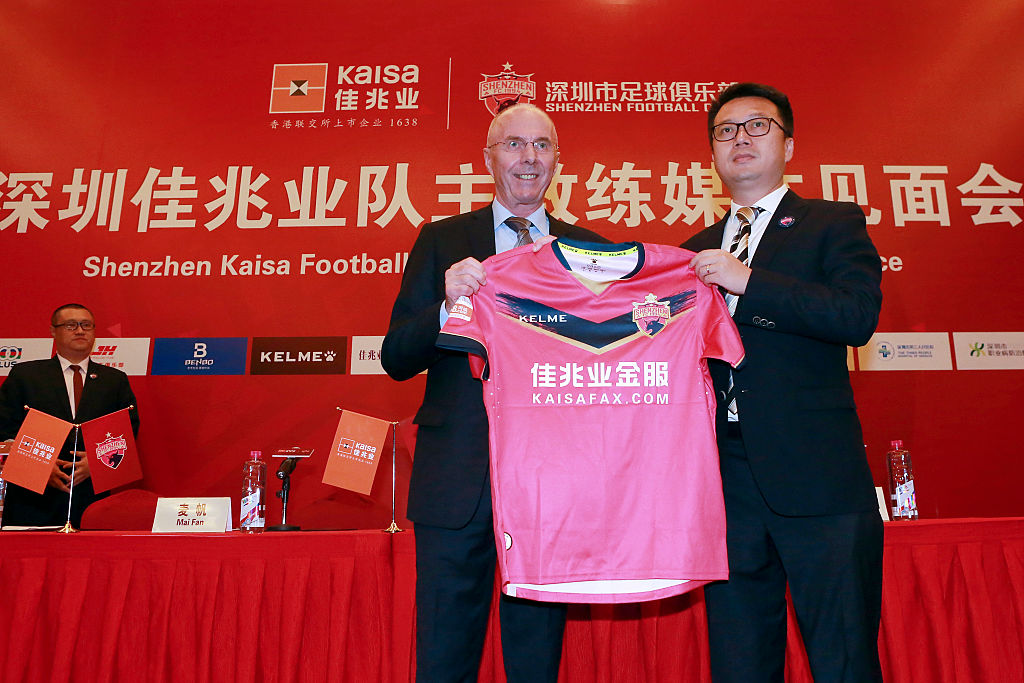
If you move to China, for example, don’t ever think that you’re going there to make the Chinese more Swedish, as that will never work. You have to find out what they’re like and what’s important for them. You need to be open to things.
I remember when I was young and left Gothenburg to become the manager of Benfica. We were travelling to one of my first away games and there was a flight we could catch at about 12.30pm or 1pm. I said, ‘OK, we’ll take that one’. But the team captain said, ‘Sorry, I don’t want to cause any trouble, but 1pm is lunchtime – we can’t really fly then’. I thought, ‘In Sweden, who cares? We can have our lunch before or afterwards’. But in Portugal, that’s a holy time of the day and lunch is extremely important – not only the food, but also as a way of the team being together. After a while, I understood that he was right and I was wrong – don’t travel or do something when it’s lunchtime!
When you go to a new country, it’s important to learn the language, too. You can use interpreters but it will never be the same. Try to learn the language as quickly as you can. I tried with Chinese, but struggled! China was a challenging country to adapt to, but probably the most challenging was the Philippines. I spent a few months managing their national team, but football didn’t seem as important in that country.
We went to the Asian Cup – the first time that the Philippines had qualified for the tournament – and played home games in the Suzuki Cup against Singapore, Thailand and Vietnam. We thought we would get a lot of support, but people didn’t read about it so didn’t turn up. There were only 4,000 or 5,000 fans. The challenge was to get people to understand what football was, and it proved difficult. With things like the organisation, too, it was a huge challenge and not a pleasant one, but anyhow, it was an experience!
The easiest place to adapt to was England, because my generation in Sweden was brought up with English football. If you were interested in football, you were in front of the television on Saturday afternoons, watching a match from the old First Division.
10. Dealing with the media
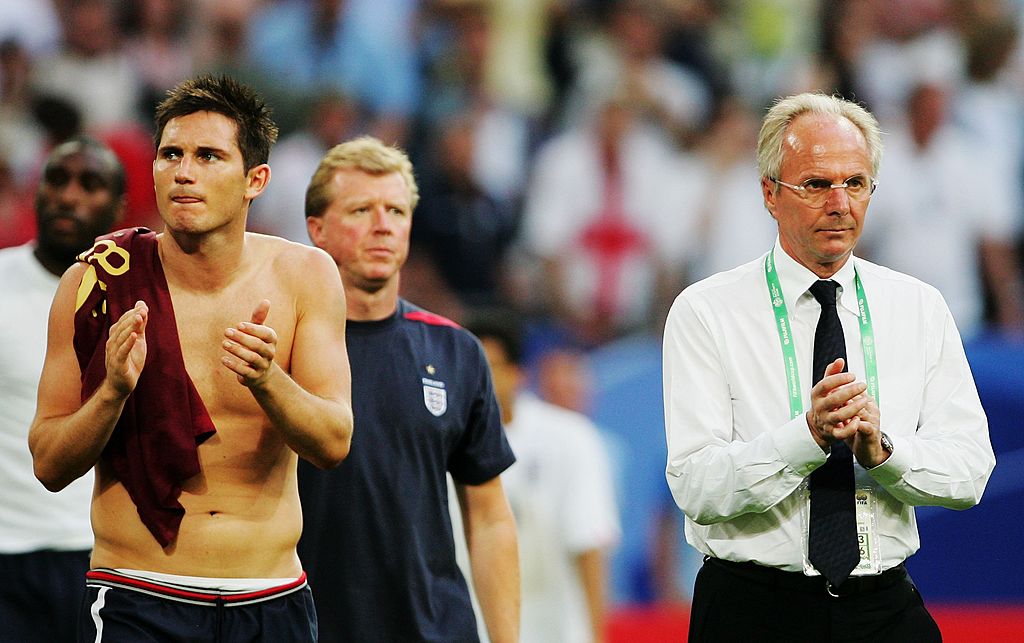
When I started working as a manager in the late 1970s and early-80s, the media travelled on the same plane or bus as the team and even stayed in the same hotel. After a game, you could go to a bar and have a drink with them. That’s totally
impossible today. It doesn’t exist any more. That’s a pity, because you knew that if something stupid happened, it would never come out in the press. There was a mutual respect.
Now it’s very different, but football needs the media and the media needs football, so we should be open with each other. As a coach, you can’t tell the media everything that happens in the dressing room, but try to give them as much information as you can and try to respect them. You’re not always happy about what they write, but there’s no point making a fight with the media because they will eventually win. They always have the last word.
When I managed in Italy, the media was really tough because they don’t have a lot of patience. If you don’t get results you’ll be criticised, and if you’re at clubs like Juventus, Lazio, Roma or Inter, it can happen very quickly. In a way, I respected that. If they slaughter you because you played bad football, maybe it’s right.
They would never write about your private life, but in England it was a bit different, and my private life became too important to the media. I remember presenting the squad for the next major tournament, the Euros or World Cup, and all the questions were about my private life. You wonder, ‘What’s really going on? Are we more interested in trying to make England win, or in what the bloody manager did last night?’ I thought it was all out of proportion, but it’s OK. I’m still alive!







